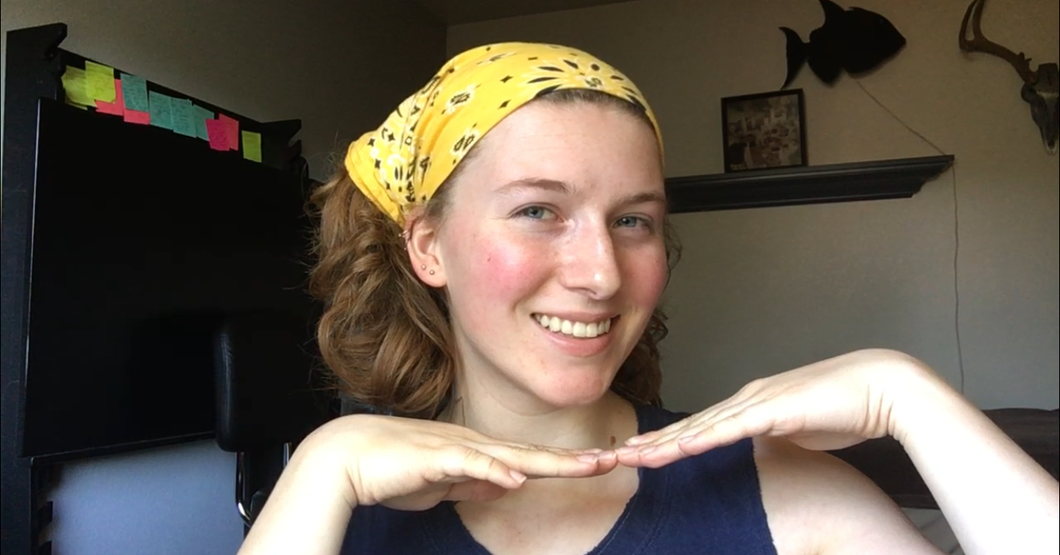Like most women I know, I started regularly wearing makeup around junior high. During my first year back in the public school system after being homeschooled, I sported pencil eyeliner, thick mascara, and a "can I speak to the manager" pixie cut (but we don't talk about that).
I remember begging my mom to let me wear makeup when I was little. Courtesy of my grandparents, I grew up with dozens of little lip gloss palettes, from Hello Kitty to that weird mobile phone lip gloss thing, and I promise that if I had been a child when "Frozen" came out, I would have had an Elsa palette too.
I can't pinpoint exactly when my opinion of the beauty industry shifted so drastically, but I can tell you when I decided to stop wearing makeup for good.
During my first real job, I quickly learned that the tips I made correlated to the amount of makeup I decided to wear on any given day. Even though I was aware of the horrifyingly sexist bigger picture (i.e. women who do not conform to the expectation that they need to wear makeup are punished by less financial gain at work) this trend represented, I made the decision to take advantage of it and subsequently contribute to it.
Once I had quit my job, and no longer needed to do my whole face in order to make decent tips, I realized that it had become a habit for me put on a little eyeliner or colored brow gel every time I left for the theater, the store, a date, or a family dinner—you get the picture.
At some point, it stopped being a conscious decision, which was the point at which I deemed it problematic. In order to feel presentable to the world every day, I subconsciously believed that I needed to change something as arbitrary and insignificant as to how I looked.
I had a pretty solid understanding of the ways in which the beauty industry manipulates its target market as a result of, well, being a woman. In order to persuade you to buy their useless products, a cosmetic company must first convince you that you have an unfulfilled need when that isn't really true. For example, you don't need shinier hair, longer lashes, or whiter teeth like you do shelter or food. To instill these manufactured, false needs in a target market, they saturate the world around you with images of "perfect people," to which many attribute the words: "Idealized," "unattainable," and "unrealistic expectations." In marketing their products like this, these companies inspire baseless, random insecurities in people they hope to manipulate.
I felt fine putting a bit of eyeliner or mascara on every other day. It's not like I was buying every product that promised to minimize my pores, permanently curl my eyelashes, or give me Kim Kardashian's lips. But the truth is, I was still supporting companies that deliberately make women hate every inch of their bodies, funding their CEOs already filthy rich lives, and contributing to a society in which painting over your perceived physical flaws is expected of women.
For the first few weeks, it was still challenging to refrain from grabbing my pencils while getting ready to head out. The challenge was less about feeling "naked" without makeup, and more about breaking the subconscious habit of making makeup a part of my daily routine without giving it the slightest thought.

In hindsight, I feel guilty for thinking I was such a conscientious objector of our sexist ideals and traditions, while simultaneously contributing to the system I despised. There are many ways to interpret experiences like mine, but that is what I took away from it.
It should go without saying that wearing makeup doesn't make you a bad person, but I think it is important to question why you do it, understand the factors that make you like and want it, (namely smart marketing tactics, and sexist societal pressures) and the effects it might have on you, and on society in general.



















